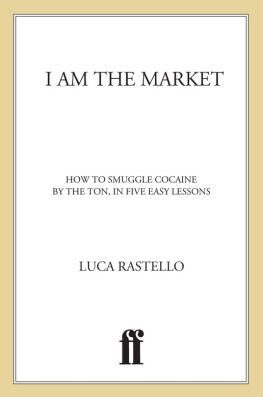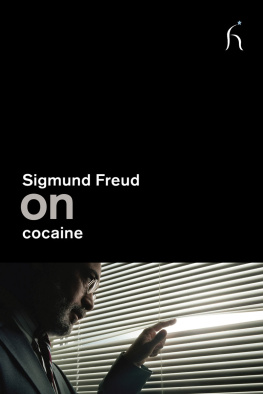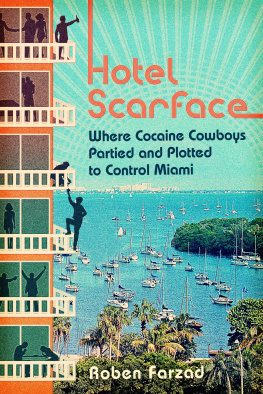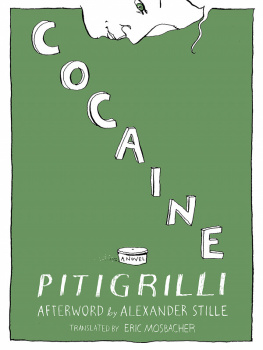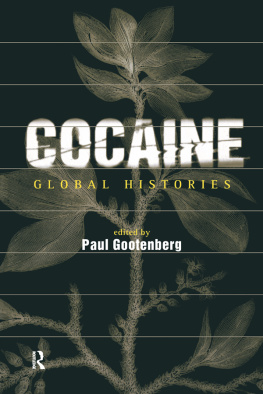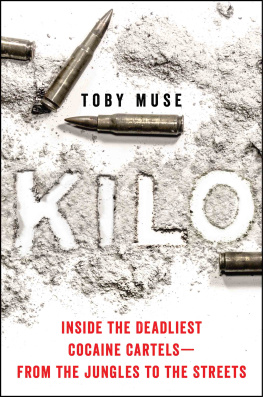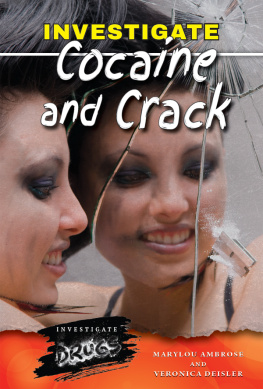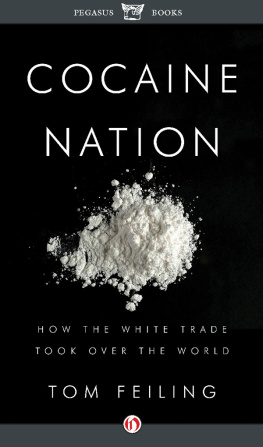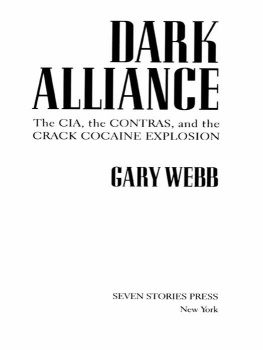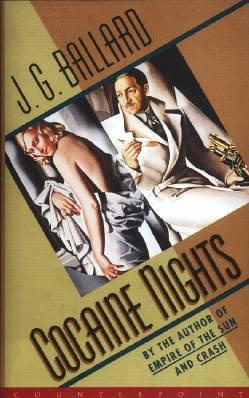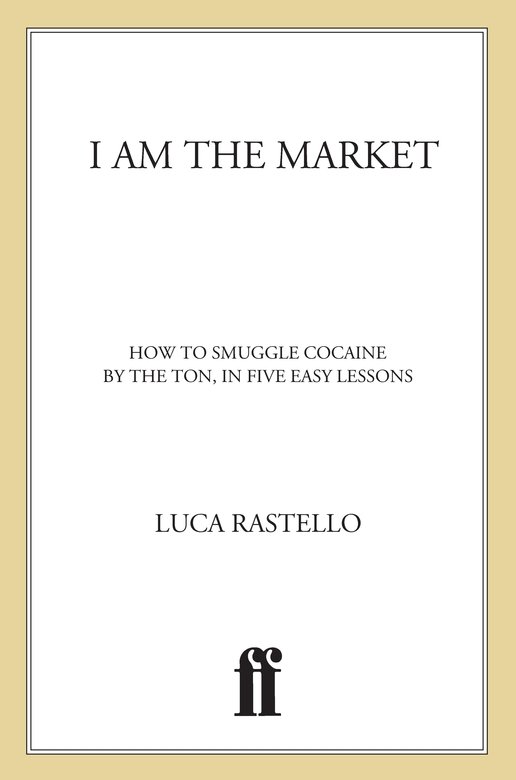Luca Rastello is a journalist with the Italian newspaper La Repubblica and director of Osservatorio Balcani e Caucaso, a think tank and website that specializes in the criminal economy and international relations.
Its over. You know a lot of things very few people know. Welcome to the market. Choose your clients carefully, and youll be on safe ground. Not everyone is a good client. The great Italian rich sniff like mad, but theyre too friendly with the powerful and too concerned about their own reputations. A golden rule for the ethical narco is never to get involved with them, never to supply them
And beware of judges. All my life Ive known only one class of true clairvoyant: them. When they give you thirty years, you can be sure theyve told your fortune accurately. Without even reading your palm. Avoid judges and avoid addictionthose are the two rules. Theres still time for a story, the strange story of a man who was ruined by judges and addictions.
They called him the Painter. He came from a good family. His brother was a bank manager in Florence, his sister a surgeonlovely woman. He lived in Corpus Christi, Texas, on the Mexican border. He was a drunk; and by trade, appropriatelyenough, he imported wine to the United States. Of course, he smuggled in cocaine from Mexico; it was the roaring eighties. He had a beautiful villa and a restaurant (its a mania with us narcos: if you dont own your own restaurant, youre a nobody). He brought the stuff over on the fruit trucks, unloaded it right inside the restaurant. Its possible that he had an accomplice in high places, but this wasnt so indispensable at that time. But he had a partnerItalian like himself, indiscreet and loquacious. So loquacious that he confides in some people from the FBI. They play along, let him talk, and finally, one evening, the agents descend on the restaurant, knowing just what theyre looking for, and catch the Painter with two hundred kilos. The restaurant is impounded (the fruit of illicit earnings) and very soon afterward put up for auction. Already guessed who wins the auction? Thats right, the loquacious partner.
The Painter comes off a bit worse: they take him to Houston and give him twenty years. Twenty years in those parts means at least thirteen for sure, without ever putting your nose outside the cage, not even the tip of it. Afterward, maybe, parole, release on bail if you earn it. The severity of the regime is determined by the level of security thats been set for you. There are five, and the Painter gets the fourthmeager consolation. It could have been a bit worse. Still, level four is real jail.
In prison the Painter behaves himself. He does ten years without a murmur and moves down the security levels. In the end hes at Eglin: cottages for four with a patch of garden, rehabilitation work, a bara small federal concentration camp paradise, nothing like the state prisons, where in order to survive, youre usually forced to choose a tribe, which is decided mainly on the basis of your ethnic group. Eglin is a place well suited to a guy from a very good family like the Painter.
But he missed the wine.
However good a North American prison may be, theres no way you can get wine, real good stuff. In the Caribbean its different. There, if you have the money, you can get burgundy brought right into your cell every week. But this was the United States.
The Painter consults his lawyer, who suggests he serve his last three years in Italy, his native country. Janet Reno was at the Department of Justice at the time; the regime was fairly lax. He thinks it over and decides he likes the idea. He gets things moving. At Eglin he studies and paints; in the cottage he has a cell to himself and his own key too. He loves Munch and reproduces The Scream on request. That anguished face in the midst of the acid colors is very popular among the inmates, but its popular outside too, and outside you can sell it for 150 dollars. He does some van Goghs too, and hes not short of money now. His job is cleaning twelve yards of corridor. He keeps it spotless, the pride of the whole block. In the morning he goes to the buffet: bacon, bread hot from the oven, then the gym.
Until the day Janet Reno grants him Italy. Regina Coeli prison in Rome. Instant transfer and instant nasty surprise.
He cant believe it. Ten to fifteen people crammed together in one big room; communal toilet full of encrusted shit; smell of sweat, fear, and other things best left unnamed; no personal effects. He thinks hes going mad, and from the first day he realizes hes not going to make it. He shouts, protests, looks for someone he can tell that his contract with Janet Reno didnt stipulate these awful conditions.
He cracks up. At night he can be heard all over the block, shouting for hours things like, Pimps! Youre all a bunch of pimps! Bastards! Im not having it! Forty square meters theypromised me! Ive got a right to my forty square meters, do you hear? And so on.
What do they do? Pack him up and send him off to another prison, in Viterbo. Quieter. He calms down a little. His family sends him five hundred thousand lire a month, and he invests in cigarettes and exchanges them for wine to get over his depression. He drinks thirteen or fourteen Tetra Paks a day, revolting stuff. He sweats, stinks, his skin exudes the smell of vomit typical of cartoned prison wine. He quarrels with the warders every day. His favorite exclamation: Spaghetti eaters! Youre worse than the Mexicans! Who knows, maybe by that time hed convinced himself he really was a Texan. Not a day passes without him filing a complaint and getting reported himself. Like a true citizen of the empire among the savages. Any chance hed had of getting time off for good behavior has gone now. His lawyer keeps warning him, If you go on like this, youll do even more than the thirteen years that were agreed on. And with no day release. But he digs in his heels. He has his mind set on his legal rights, that idiot of a narco. Making trouble has become a mania by now, and he grows increasingly prickly.
He convinces himself of one thing. They do it deliberately: they always put penniless people in his cell because they know one of the unwritten rules in there is that if your cellmate is poor, you maintain him. So the Painter yells, and always at night, if possible: I only want people with money! Theres nothing in my contract about having to maintain these fucking spaghetti eaters! And he starts writing petitions. He even stands outside the cells of the new admissions (thats what they call them, new admissions) and demands to see a statement of the assets and liabilities of those destined for his block.
So the years pass. And he, needless to say, doesnt get out. When the thirteenth year arrives, hes still inside. The last time he saw a landscape without bars was from the window of the plane placed at his disposal by Ms. Reno. Release comes two years late. Fifteen instead of thirteen. He asked for it, is what everyone thinks. He bids farewell to his last cellmate, a guy who, for once, he hasnt had to maintain, and gives him a Picasso, one of his own. Now Im going to leaveits his ide fixeand fly straight to the USA. Then Venezuela, where he knows some people he met in the Texan prisons.
He leaves.
But he stops at the first bar.
He starts by draining two bottles of wine. Then he remembers how much he used to like whiskey. He collapses right there at the bar. He wakes up in a fury, shouting. They take him to a hospital and diagnose cirrhosis. He does three or four months of detoxification, then moves to Milan and disappears.

